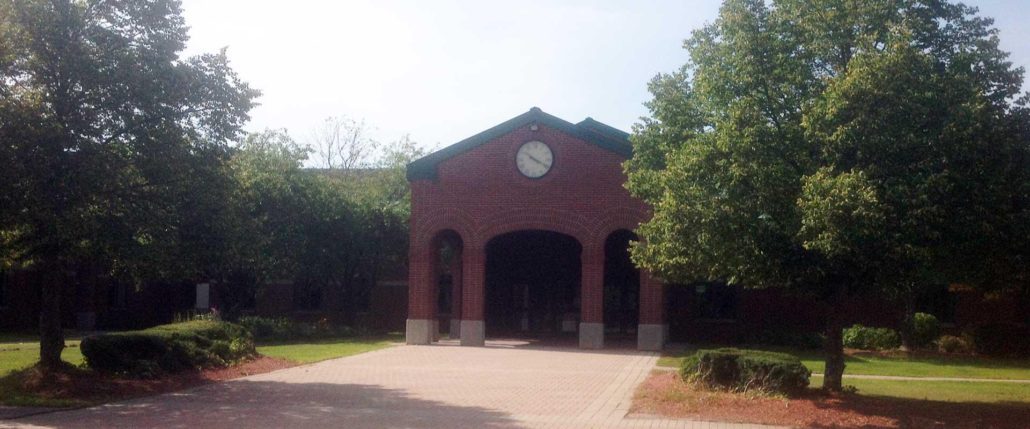Vassalboro selectmen discuss sewer expansion fundings, speeds on So. Stanley Hill Rd.
 by Mary Grow
by Mary Grow
Vassalboro selectmen had only one formal public hearing on their June 13 agenda, but two issues drew extensive comment from residents in the audience.
The hearing was on disbursement of Tax Increment Finance (TIF) funds, specifically a $120,000 request from the Vassalboro Sanitary District (VSD) to help with continued work on its connection to the Waterville-Winslow sewer system.
Sanitary District Board Chairman Ray Breton said the project continues to receive grant funds, and the district expects additional future revenue as more people take advantage of new opportunities to hook onto the sewer system. One way trustees would like to use TIF money is as an incentive to help new customers with the cost of running pipes from the street to their houses.
The district intends to charge property-owners who can hook on but choose not to a small fee for having the option available, in case individual septic systems fail. Other sewer districts have similar charges, Breton said.
More revenue might make it possible to modify future rate increases, he said.
He expects the extended system will be “running by fall” and finished in 2020.
After the hearing, selectmen agreed to postpone action until the VSD provides more specific figures on pending income and expenditures. Breton had no objection to a delay.
Later in the meeting, resident Mike Poulin proposed amending Vassalboro’s TIF agreement to allow additional projects to seek funding. Selectmen tabled the issue pending more VSD information.
The second discussion was with Maine Department of Transportation Mid-Coast Area Regional Traffic Engineer David Allen, a Vassalboro resident, about the speed limit on South Stanley Hill Road between Route 32 and the intersection with Priest Hill and Lombard Dam roads.
Currently, the Route 32 end has a 30-mile-an-hour limit that changes to 45 miles an hour after less than half a mile. Residents have petitioned for a 25-mile limit in the current 30-mile zone.
Allen said by state criteria, there are two choices:
- If the 25-mile limit is introduced, it would extend from Route 32 to about the Friends Meeting House, with the rest of the 30-mile zone increased to 35 miles an hour; or
- The present 30-mile and 45-mile zones could remain as they are.
His goal, Allen said, is a safe road, which is not necessarily a slow road. He tries to choose the speed at which most people travel, because speed differentials are dangerous. He agreed with residents that enforcement is a problem whatever the limit.
Selectmen and Allen discussed other measures that might be helpful. The issue will reappear on a future selectmen’s agenda.
In other business:
- Selectmen approved Road Commissioner Eugene Field’s plan to buy a 2020 Dodge plow truck from Darling’s, in Augusta, and add plowing equipment from Viking-Cives, in Lewiston, with the understanding he will report back if he finds a better deal.
- They reviewed 10 paving bids and voted to contract with Hopkins Paving, of Hermon.
- After discussion with Department of Environmental Protection Project Manager Matthew Young, they voted to “work with the state” to allow testing of Vassalboro’s landfill cover to see if it works better than other types of covers. Re-elected Board Chairman Lauchlin Titus voted against the motion, after describing himself as “100 percent in favor of the advancement of science” and “100 percent opposed to seeking possible problems and maybe having to remediate.”
- Selectmen postponed action on Young’s second request, to check the landfill area for PFAs, defined by Wikipedia as “per- and polyfluoroalkyl substances,” industrial compounds that don’t break down and might have health effects.
- They hired Vassalboro resident Mike Petito as the new transfer station and public works employee, starting in July.
- They authorized Codes Enforcement Officer Dick Dolby to take legal action in the case of a mobile home moved without a permit and, having lost its grandfathered status, no longer meeting local ordinance requirements.
The next regular Vassalboro selectmen’s meeting is scheduled for Thursday evening, June 27. As in past years, they plan to meet only once a month in July and August; after June 27, their regular meetings are scheduled for July 18 and August 15.









